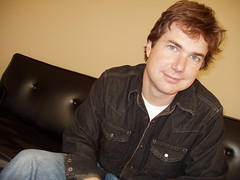
What if we took a break from saying "Jesus Christ" and instead went with "Jesus the Messiah" or "Jesus the Anointed"? Here's my rationale: Technically, when we say "Christ" we are merely transliterating the Greek noun "christos" rather than really translating the word into English. That is, "Christ" doesn't have any meaning in the English language outside of a moniker for Jesus, which is why some people, understandably, think it must be just part of Jesus' given name. "Christos" translates the Hebrew word "messiah," and comes into English as "anointed-one." All to say, when the Bible calls Jesus the "Christ," it is actually communicating something about Jesus' mission, the purpose that the Father had appointed for him. To start calling him "Jesus the Anointed" would remind us that Jesus was called and equipped by God for a specific kingly, priestly task (kings and priests were both anointed in the Old Testament). Many people these days are rightly acknowledging that the most recurrent theme in Jesus' own teaching about himself is that he had arrived to inaugurate his Father's kingdom, to put-the-world-to-rights (as N.T. Wright likes to say). Whenever the New Testament writers call Jesus the "Christ," they are reminding us that Jesus is God's chosen-one, Israel's messiah who was sent to be the world's rightful Lord, that this Jesus has personally brought the beginning of the end of history, as all the old prophets had anticipated. To many people, the untranslated word "Christ" does not communicate any of this rich meaning (though certainly, we can train ourselves make such an association in our heads whenever we hear "Christ"). To start calling Jesus "the Anointed" would immediately raise the question "anointed to do what?" - and of course, the answer to that question is what matters most about Jesus. Any thoughts, readers?




